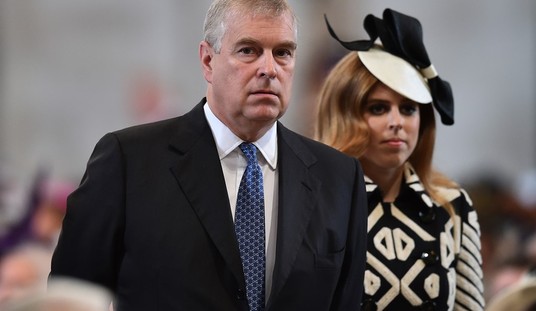Apparently one of the big lessons we need to learn in the wake of the most recent ISIS-inspired terror attack is that “Allahu Akbar” is not a threatening phrase. As Allahpundit pointed out here, we saw the phrase become the source of some back and forth attacks between Jake Tapper and various folks at Fox News (with Tapper getting the better of that exchange in my opinion). But the NY Times has also now run two pieces on this same topic in two days. The first one, published yesterday, was an opinion piece titled “I Want ‘Allahu Akbar’ Back.” It reads in part:
The attack had similarities to the one that took place in Charlottesville, Va., in August, when a neo-Nazi, James Alex Fields, rammed his car into a crowd of people who were protesting against a rally staged by white nationalists, killing 32-year-old Heather Heyer and injuring 19 people. President Trump defended his initial response blaming violence on “many sides,” saying, “It takes a little while to get the facts.” That caution doesn’t seem to be applied when the suspects have been described by witnesses as “Middle Eastern” — and definitely not when they’ve said, “Allahu akbar.”…
That’s why it hurts that on Tuesday, “Allahu” and “akbar,” those two simple words so close to our hearts, instantly shaped the entire news coverage and presidential response. A common, benign phrase used daily by Muslims, especially during prayer, is now understood as code for “It was terrorism.”
It’s easy to forget that language is often hijacked and weaponized by violent extremists. Some people yell “Allahu akbar” and others chant “heritage,” “culture” and “white pride.” The preferred slogans of a killer don’t make much difference to the people whose lives are lost or their loved ones, but they make all the difference in Americans’ collective understanding of a tragedy…
Today the Times published a news story headlined, “‘Allahu Akbar!’ An Everyday Phrase, Tarnished by Attacks.” The article points out that the phrase has all sorts of uses:
“Let’s say your football team is mounting an attack,” said Ahdaf Soueif, an Egyptian author. “You can say ‘Allahu akbar, Allahu akbar, Allahu akbar,” and you’re pushing them along, like, “Go for it, go for it, go for it.’”
Even more prosaically, Ms. Soueif said, “You see a really beautiful woman or a good-looking guy, you go, ‘Allahu akbar.’”
But the phrase — to many Muslims’ distress — has also been seized on by jihadists who claim that Islam justifies their attacks on innocent civilians in the name of God.
Honestly, I’m not sure Americans are as ignorant about this phrase as the NY Times seem to think. Many Americans have surely heard before that it has other meanings, just as they’ve been told (repeatedly) that Islam means peace. And yet, it’s absolutely correct and appropriate that this phrase becomes news after a serious and deadly terror attack in the United States. Why? Because it points us to a specific motive for the killing. As today’s piece in the Times points out, we’ve heard this phrase many times before under similar circumstances:
The driver of a truck that mowed down 20 people on a Manhattan bike path on Tuesday was said to have cried out “Allahu akbar” before he was shot by a police officer. The men who carried out the attack on the French newspaper Charlie Hebdo in 2015 shouted it during their onslaught. And the phrase rang through the air as a British soldier was run down near a military barracks in 2013 and then hacked to death.
And that’s barely the tip of this particular iceberg as Michelle Malkin pointed out yesterday:
From the Muslim monsters who decapitated American hostage Nick Berg, to the Fort Dix, New Jersey, attack plotters, to convicted al-Qaida scientist Aafia Siddiqui, to Fort Hood assassin Nidal Malik Hasan, to Times Square bomber Faisal Shahzad, to the machete-wielding murderers who beheaded a London soldier on a busy street, to the truck and stabbing jihadists in Dijon and Nantes, to the Charlie Hebdo-targeting jihadists in Paris, to the ISIS gunmen at Bataclan, to double-stabber Wasil Rafat Farooqui in Roanoke, Virginia, the message of “Allahu Akbar” is unmistakable: Kill all infidels.
So, while I understand that the phrase itself is not a reference to terrorism, in the context of a violent attack, it almost always has that narrower meaning. And it’s worth pointing out that, in the case of the deadly Manhattan attack, that connection has once again proven reliable. Less than 24-hours after the attack authorities have charged the suspect with terrorism. He left behind notes suggesting he was inspired by ISIS and even asked to fly an ISIS flag in his hospital room. Americans who heard the reports of the suspect shouting “Allahu Akbar” and took that as a sign pointing to his motive were proven right.
If the use of the phrase by extremists makes American Muslims uncomfortable, that’s understandable. But what are we supposed to do about that? It’s not the authorities or the media or regular citizens who have sullied the phrase. The Muslim terrorists themselves have sullied it by shouting it during or after murder sprees. Like it or not, one of the meanings of “Allahu akbar” is as an outward signifier of inward extremism. As long as extremists keep shouting it, Americans will keep making that connection and they’ll be right to do so.








Join the conversation as a VIP Member